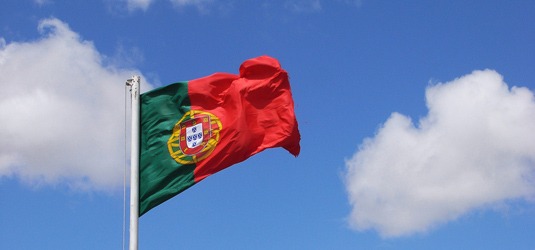In the early afternoon of Thursday, 5 February 2015, according to information by the Observatory of Control and Repression (here) in Portugal, the website esquerda.net (here) and several news reports (here and here), a special patrol (SIR – Serviço de Intervenção Rápida) of the Alfragide’s Public Security Police (PSP – Polícia de Segurança Pública) carried out an incursion into the neighbourhood of Cova da Moura in Lisbon, in a routine patrol action which resulted in the arrest of one person. Although the detainee did not offer resistance, he was physically assaulted by the police even when held on the floor by the officers. There was a large number of witnesses present at the scene, who protested with indignation against the behaviour of the officers. Yet the police continued to threaten residents and bystanders with physical violence, persecuting them with batons and firing rubber bullets. A woman hanging her laundry in the balcony was hit by three rubber bullets and had to receive treatment in hospital – as confirmed by Zulmira Coelho, a worker in a local association. Following these events, several residents in the neighbourhood (some working at the Youth Association ‘Moinho da Juventude’) were concerned about the aggressive intervention by the authorities and the disrespect of the rights of the community and enquired in the Alfragide police station about the detention and attempted to present a complaint against the behaviour of the agents. Once in the station, five residents were detained and beaten by several agents. Amongst them was Flávio Almada (Lbc Soldjah), who is associated with the European network Decoloniality Europe. Given the brutality of the police action, the detainees were transported under police escort to receive medical assistance at the Amadora-Sintra Hospital – confirmed by a spokesman for the National Institute for Medical Emergency (INEM – Instituto Nacional de Emergência Médica) to the news agency Lusa. The detainees displayed clear evidence of physical assault, and one had a severe injury in the leg caused by a rubber bullet shot by the police. Following that, they continued to be held under police custody waiting to be heard by a judge. The hearing was expected to take place on Friday, 6 February, at the Court House of Amadora; yet the prosecutor refused to hear them and the hearing only took place on the following day, Saturday, at the Court House of Sintra. The public prosecutor asked for the five detainees to remain under custody, accused of resistance and coercion of an officer (here). That afternoon, the detainees were released and subjected to coercion measures, namely statement of identity and residence (TIR – Termo de Identidade e Residência). So far, even after being enquired by the media, neither representatives of the police authorities nor of the Home Office (MAI – Ministério da Administração Interna) have issued a public statement regarding the accusations of police brutality.
While the media covered these events, some news reports emphasised the version of accounts by the police. For instance, the situation was described as ‘attempted invasion of the police station’ (here) – reinforcing the criminalisation of black youth –, with the Lisbon Metropolitan Police (CoMetLis – Polícia Metropolitana de Lisboa) spokesman, Hugo Abreu, omitting that the detainees were physically assaulted by police officers and had to receive medical treatment (here). Nevertheless, this is not merely a question of contesting the facts and events surrounding this particular case. Rather, what the analysis of the media shows is the continuous representation of these kind of events as ‘just another episode’ of ‘violent and marginal youth’ against the police and/or authorities. These events need thus to be interpreted in the context of the criminalisation and surveillance of black youth and so-called ‘problematic neighbourhoods’ in the last decades, on par with the systematic denial of institutional racism by state authorities and public bodies in Portugal. Part of this stance of political denial has been the refusal by the Portuguese state to publish disaggregated data on ethno-racial discrimination, or to take measures towards establishing an independent monitoring body on racial equality. This has been a crucial demand by grassroots and anti-racist movements. Contesting official narratives and practices, in the last few years there have been several initiatives and denunciations regarding police brutality against black people and communities by movements such as Plataforma Gueto (for instance, regarding the case of 14 year-old Kuku, here and here and the 15 years old Musso here, both killed by the police) and anti-racist associations, namely SOS Racismo (see the articles by Mamadou Ba, here and here). The work undertaken by these political activists and intellectuals has included the collection and analysis of data on youth killed by police officers. These statistics reveale that from 2000 to 2010 about 40 young people were killed in such circumstances in Portugal. This was mainly in the Lisbon metropolitan area and the figure for black youth was over one third (a largely disproportionate figure regarding the total population). No conviction of a police officer for any of the killings had been achieved so far, and only one case went on trial in a court of justice. Therefore, these recent events cannot be read as isolated cases in the European context. Rather, they are revealing of the contemporary climate of criminalisation and racial profiling of black youth in Europe, and of the strengthening of surveillance and border control policies. We thus call upon all brothers and sisters in Europe to spread the news about this attack in Portugal and show their solidarity for the initiatives undertaken to combat institutionalised racism.
Authored by Ana Rita Alves, Marta Araújo, Mamadou Ba and Silvia R. Maeso







